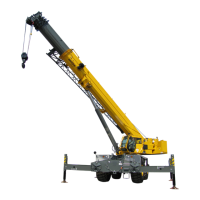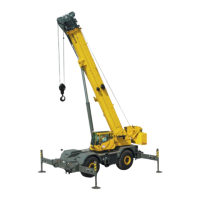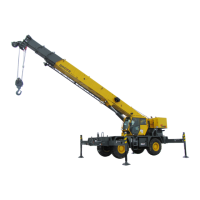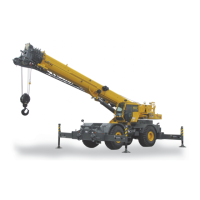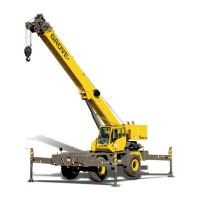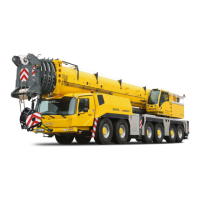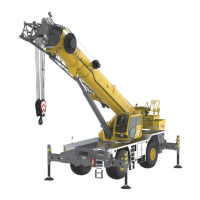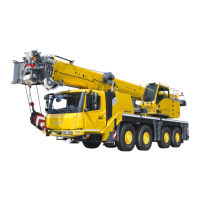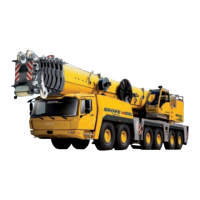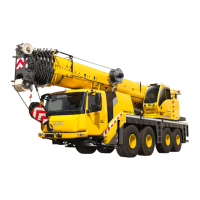OPERATING CONTROLS AND PROCEDURES RT9130E-2 OPERATOR MANUAL
3-28 Published 3-1-2018, Control # 559-03
Use particular care to ensure that cranes being operated in
very cold temperatures are operated and maintained in
accordance with the procedures as provided by Manitowoc.
Therefore, always ensure adequate lubrication during
system warm-up and proper operation of all crane functions
when operating in cold weather and regardless of the oil
viscosity of the crane’s lubricants, always follow the cold
weather start-up and operating procedures described in the
Operator Manual. To ensure adequate lubrication during
system warm-up and proper operation of all crane functions,
(Refer to Arctic Lubricants and Conditions, page 5-4.) If in
doubt of the suitability of a specific fluid or lubricant, check
with an authorized Manitowoc distributor or Manitowoc
Crane Care. Cranes should have appropriate hydraulic oil,
lubricants, and other auxiliary items required for operation in
arctic temperatures.
Manitowoc recommends the crane is equipped with the
following cold weather accessories:
Down to -29°C (-20°F) Package
• Battery heater
• Fuel line heater
• Engine hood insulation
• Fan clutch
• Radiator air shutters
• Air diverter
• Diesel fired cab heater
• Cold weather alternator
• Fluids suitable to -29°C (-20°F)
- Arctic windshield washer fluid
- Arctic fuel
Down to -40°C (-40°F) Package
• Coolant heater (to circulate warm coolant through
heaters and engine)
• Transmission heater
• Swivel heater
• Battery heater
• Fuel line heater
• Engine hood insulation
• Fan clutch
• Radiator shutters
• Air diverter
• Diesel fired cab heater
• Cold weather alternator
• Super-capacitor starting system
• Fluids suitable to -40°C (-40°F):
- Arctic windshield washer fluid
- Arctic fuel
Individual crane functions should be operated to ensure they
are sufficiently warmed prior to performing a lift.
Operation of cranes at full rated capacities in ambient
temperatures between -9°C and -40°C (15°F and -40°F) or
lower should be accomplished only by competent operators
who possess the skill, experience, and dexterity to ensure
smooth operation. Shock loading shall be avoided. See
Section 5 of this manual for more detailed information on
operation of cranes down to -40°C (-40°F).
Component Coolant Heater
A diesel fueled coolant heater circulates warm coolant
through engine and crane components when operating
during arctic temperatures. The coolant heater should be
activated 2 hours before starting the crane to allow sufficient
time to preheat fluids and assist with easy start-up conditions
at maximum altitudes rating of 1,500 m (4,921 ft).
NOTE: If a -40°C cold weather package is present
(optional) start the diesel fired coolant heater (max
altitude rating of 1500m) two hours before
attempting to start the crane in temperatures below
-29°C (-20°F).
NOTE: Operation of the heater is not permissible:
• At locations where flammable gas or vapors
are found or can be formed (example: at fuel
stations and chemical factories)
• At locations where explosive dust is found or
can be formed (example: coal, wood or grain
dust).
• There is a risk of suffocation when using the
heater!
• Do not operate the heater in enclosed spaces
(example: garages).
WARNING
Explosion Hazard!
Before switching on, check if the heater can be operated
at the current site of the crane. There is a danger of
explosion when using the heater around combustible
objects! Do not park the vehicle near objects that are
flammable.
Use caution near the exhaust tailpipe as it will also
become very hot.

